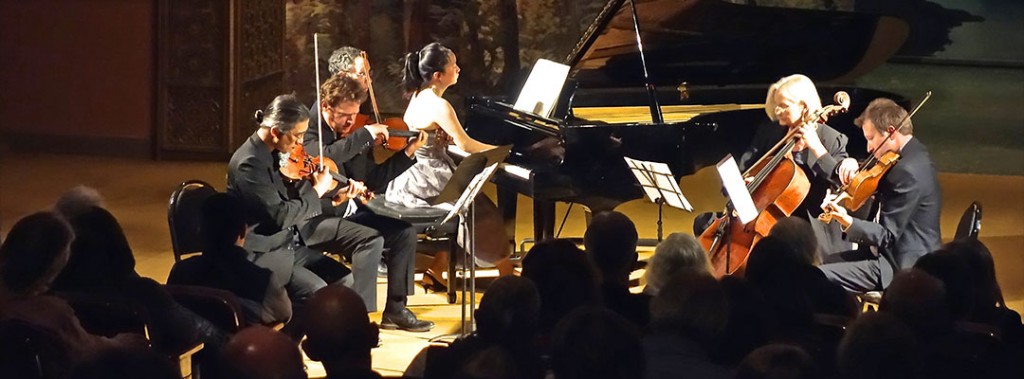
Serenata of Santa Fe will present the New Mexico Premiere of String Quartet: An eye for an eye makes the whole world blind. Commissioned, premiered, recorded and released by Kronos Quartet in 2003, Alexandra du Bois’ first string quartet traces personal and universal themes regarding the U.S. led invasion of Iraq in 2003. Kronos Quartet’s founder, violinist and artistic director of Kronos Quartet has stated of this work:
“This music attempts to be a conscience in a time of oblivion. She dared, in ‘An Eye for an Eye’, to counter abuses of moral authority with an internal, personal sound using the string quartet as a witness, a reminder, that music and creativity are part of a continuing web of responsibility. Alexandra du Bois, for one, looked out at the world and heard an urgent, inward sound revered by western composers since 1750 as the repository of some of their deepest thoughts […] Alexandra du Bois found a voice when many people were speechless” —Kronos Quartet’s David Harrington in Strings Magazine
A description of the work was given by Mark Swed in the Los Angeles Times after Vietnam premiere of the quartet performed by Southwest Chamber Music:
“The title was Gandhi’s adage. The timing of this composition was the start of coalition forces’ invasion of Iraq. For Du Bois, the dove symbolized the song of dawn. We wake before the sun to build afresh or, if we are soldiers, to prepare for battle. A new morning and age-old mourning conflate. The dove sings with sliding tones, which was the one common element among this concert’s Vietnamese and American music[…]
“In Du Bois’ 17-minute string quartet, those sliding tones returned with double meaning. They heralded lyricism and thick tonal lushness, the sweet dew on the vine, so to speak. They also revealed anger: In the middle there is an Ivesian uproar, Americana turned ugly and mean but resolving into hymnal peace and a return to nature[…]
“This astonishing work, written when the composer was in her early 20s, seems deeper with each hearing”
Meanwhile, the work has been described as “An impressively sustained essay in musical melancholy” (The Guardian, London), as “Fragile whalesong moans usurped by powerful harmonies, offering an extraordinary interface between traditional and avant-garde, all the more so coming from a twenty-year old” (New Zealand Herald) and “A stunning piece that explored the landscape of war and conflict with a sorrowful tone of foreboding, chaos and devastation” (BBC Manchester)



